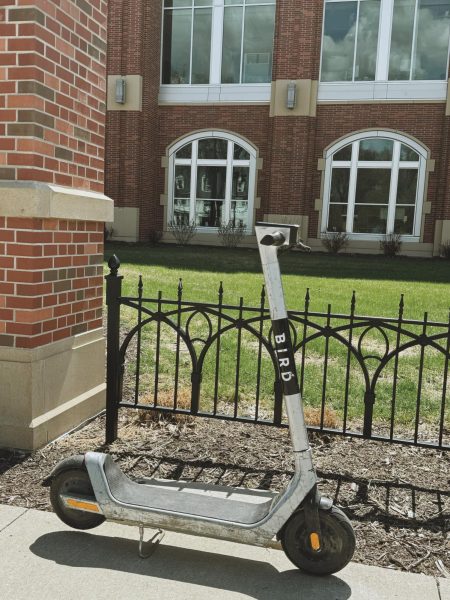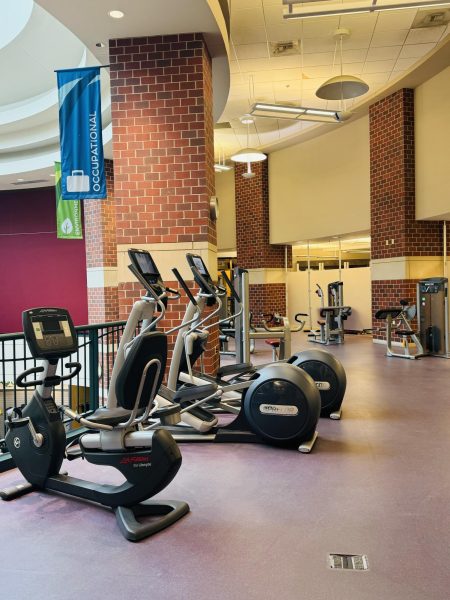Owning an Animal in College
February 22, 2023
An animal can be a wonderful addition to any college apartment and can help a student to feel more comfortable in their space. There is something special about coming home to a dog or cat running straight over to you the second you walk through the door. They can make you happy and give you someone to talk to if you live alone. Although, buying an animal is not something that should be done without a great deal of thought. There is a lot that goes into taking care of an animal, and if you are used to living with a family that all helps take care of the animal, then you may not realize how much work having an animal by yourself will be. I know I was not prepared for how much work taking care of even a small animal would be.
During my sophomore year, my significant other and I decided that we wanted to get an animal in the house we lived in together. We originally wanted a dog as we had both grown up with dogs and loved the excitement and affection they bring with them, but we decided against it as they add a significant number of costs to living expenses and are one of the higher maintenance animals that you can own as a college student. When you own a dog, you must be ready to take it outside every time it needs to go to the bathroom, whereas in a house with a fenced yard you can let the dog out to use the bathroom without you. Taking a dog out often was one of the main reasons we decided against getting one. Even though we lived in a house at the time, we planned on moving to an apartment, and with our schedules, it just would not work well for the dog to live with us. Dogs also add a lot of cost to living as a college student from food and toys to expensive vet bills and checkups. If you live in a house with a fenced in yard, have a relatively open schedule, and have the means to pay for the dog then owning one can be an incredibly rewarding experience.
After deciding against getting a dog, we ended up getting a pair of guinea pigs, which we assumed would be less of a responsibility than owning dogs. In a way, this was correct but, in some respects, they can be more work than a dog. Where a dog needs to out of the apartment often, guinea pigs need to have their cage spot cleaned daily and deep cleaned at least once a week. They do go through hay and pellets much slower than a dog goes through a bag of food, and you do not need to take them to the vet unless they are incredibly sick so you will save significantly on food and vet costs. The downsides to owning guinea pigs is that you will need a dedicated space in the apartment for their cage, and they are not small contraptions. You should also consider buying two guinea pigs as they are social animals and can become lonely if living on their own, which doubles all their costs.
The other problem I have found with owning an animal is that they make it much harder to go on a trip without them. I have taken my guinea pigs on two trips down to the Twin Cities because I was staying with family, but it is unlikely that you will be able to bring most animals with you on a trip. Usually when I leave the apartment for extended periods, I find a friend that is around to feed them for me, and this will be the same for most small animals. Owning a dog is significantly harder than this though, and they will necessitate finding someone to stay with the dog, bringing the dog with you, or boarding it at a facility for the duration of the trip. If you decide to board your animals, this will add costs to your trip, and while usually not more than $30 per night, it is still something to be considered if you are planning on taking trips after buying an animal. Afterall, the reason for getting an animal is to spend time with it, so making sure you will have time for them in two, five, or sometimes upwards of fifteen years is extremely important.
There is no one answer when buying an animal as each person’s situation is unique. When I first got guinea pigs, I lived in a house, and it was roughly the same as having them in an apartment with one notable exception; It is almost impossible to find a place to live with smaller rodents like guinea pigs due to most places not allowing them in an apartment or house. We were lucky enough to find an apartment that allowed them that was near enough to campus for it not to be completely out of the way for us to live, but that may not be the case for other animals. Fish, while generally more accepted than guinea pigs, can also be a problem in an apartment because many landlords do not want to run the risk of the fish tank breaking and leaking water into the apartment. With a small fish tank, this is generally not an issue, but larger fish tanks upwards of 50 gallons can become tricky to move into an apartment, both in finding one that accepts them and in physically moving them as they can be extremely heavy.
Most apartments will also not allow any more than two animals in the unit. If you do decide to get many animals, you will most likely only be able to find private renters willing to allow those animals on the property. Another problem that you might face when getting a lot of animals is increased pet rent. Most apartment buildings will charge a flat pet deposit but multiply the pet rent by the number of animals in the apartment. This will not be a large number per month, but over the course of the year an increase of $100 per month adds up to over $1200 spent on the animals on top of every other fee associated with them. Coupled with the fact that a pet deposit may or may not be refundable, you could be faced with an extra thousands of dollars in fees just to have the pet in your apartment.
One thing that was recommended to me a couple of times while struggling to find an apartment to accept the guinea pigs was not to tell the apartment complex that we would have them in the apartment. While this seems like a reasonable solution for most people it usually does not work in a typical apartment because it makes requesting maintenance on your apartment nearly impossible without first spend a considerable amount of effort to move the animals to a different location. If I chose to hide the guinea pigs, I would have needed to take them with me wherever I was going that day which would make the poor animals miserable as guinea pigs do not like to be removed from their cage and forced to sit in a car for extended periods of time. On top of that, if the management finds out you had hidden the animals from them you could be evicted from your apartment which makes it more difficult to be approved for a new place to live as most landlords will ask whether you have been evicted in the past.
Overall, animals can be a great thing to add to your life in college but can also add a significant amount of work to your plate. With many college student’s futures being uncertain, it is also important to consider what it will be like for the animal to move around with you and to make sure that you will have enough money and time to give them all the attention and treats they will need. After living with my animals for over a year, I do not regret getting them as they do add a lot of enjoyment to my life, but I wish I had thought a little bit more about how much work they would add to my life.
Dylan Enerson is a Dakota Student General Reporter. He can be reached at [email protected].












